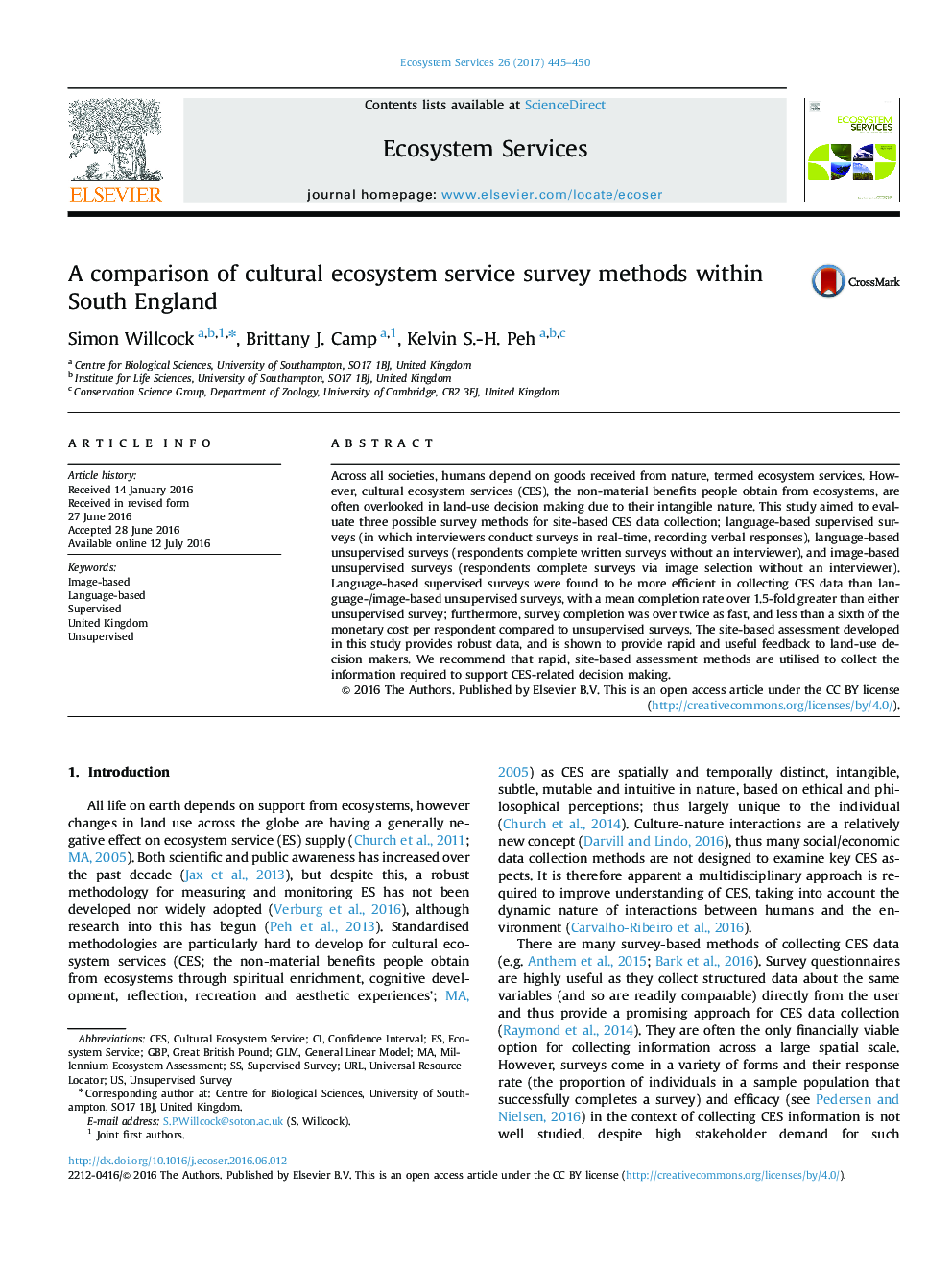| Article ID | Journal | Published Year | Pages | File Type |
|---|---|---|---|---|
| 6463572 | Ecosystem Services | 2017 | 6 Pages |
â¢Surveys can provide rapid CES information to support site-based decision-making.â¢Supervised surveys have higher completion rates than unsupervised surveys.â¢Supervised surveys are more cost and time efficient than unsupervised surveys.
Across all societies, humans depend on goods received from nature, termed ecosystem services. However, cultural ecosystem services (CES), the non-material benefits people obtain from ecosystems, are often overlooked in land-use decision making due to their intangible nature. This study aimed to evaluate three possible survey methods for site-based CES data collection; language-based supervised surveys (in which interviewers conduct surveys in real-time, recording verbal responses), language-based unsupervised surveys (respondents complete written surveys without an interviewer), and image-based unsupervised surveys (respondents complete surveys via image selection without an interviewer). Language-based supervised surveys were found to be more efficient in collecting CES data than language-/image-based unsupervised surveys, with a mean completion rate over 1.5-fold greater than either unsupervised survey; furthermore, survey completion was over twice as fast, and less than a sixth of the monetary cost per respondent compared to unsupervised surveys. The site-based assessment developed in this study provides robust data, and is shown to provide rapid and useful feedback to land-use decision makers. We recommend that rapid, site-based assessment methods are utilised to collect the information required to support CES-related decision making.
